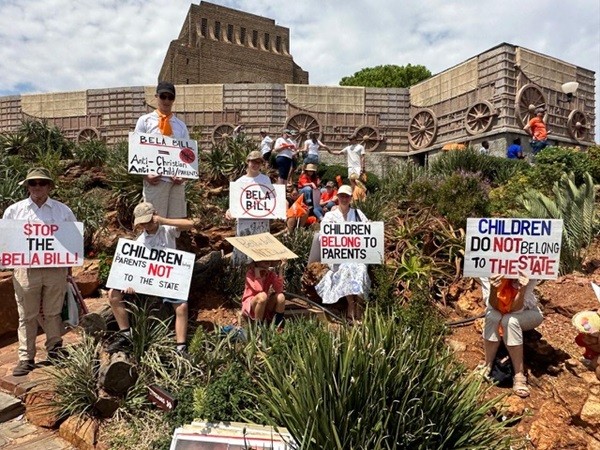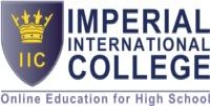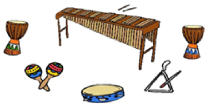Obtaining Homeschool Freedom Through Mediation
When the president signed the Basic Education Laws Amendment (BELA) Act on 13 September, contentious Clauses 4 and 5 were put on hold, allowing for a three-month consultation period. On 5 November, Solidarity, the DA, Afriforum, and the Freedom Front held a protest at the Voortrekker monument, in which 10,000 people participated. On 28 November it was announced that a settlement was reached between Solidarity, the Presidency and the Minister of Basic Education on the implementation of Clauses 4 and 5 at the National Economic Development and Labour Council (NEDLAC). This outcome is described as a major victory for civic society over politicians.
NEDLAC is a structure that resolves disputes between organised business, labour and community & development interests as well as the state. Solidarity and other unions are part of organised labour, whereas SGB’s can be viewed as organisations that represent community interests. This made NEDLAC a suitable vehicle to resolve the dispute around Clauses 4 and 5 of the BELA Act.
The dispute about Clause 35 is between parents on the one side and the state on the other hand. Some people view homeschoolers as a community, but the term 'movement' is probably more appropriate, as homeschooling is a collective of individuals from diverse communities who choose home education for different reasons. This makes NEDLAC unsuitable for resolving the dispute about Clause 35. However, although the NEDLAC structure is unsuitable for resolving the Clause 35 dispute, it does make an important point about the method used for dispute resolution, namely mediation.
Mediation is a method that is increasingly used for dispute resolution, as an alternative to litigation. As the Department of Justice has put it, the advantages of mediation include the following:
- It offers speedy resolution of disputes. It is considerably cheaper than litigation.
- It may provide a win-win situation for both parties to a dispute.
- The process is flexible and avoids technicalities.
- It is a voluntary process.
- It promotes reconciliation.
In the home education movement, many put a lot of trust in the Constitution and the Constitutional Court, due to victories achieved through litigation in the past. A notable constitutional judgement that greatly contributed towards freedom in education was the Harris case that determined the policy cannot be enforced in 2001.
However, recent books seriously question whether such a trust is always justified. Koos Malan's book, 'There is No Supreme Constitution', explains that the bill of individual rights cannot guarantee justice, because rights are subject to the ideologically-driven exercise of judicial interpretation, often with damaging consequences for those relying on the bill of rights. In the book "The Emperor Has No Clothing", Keith Matthee SC gives evidence that, despite its popularity, the Constitutional Court of South Africa, in its ruling on whether unborn human life is worthy of dignity, has shown that it is an emperor without clothes. Phil Craig, leader of the Referendum party summarises the situation as follows: "Over the last three decades, it has used its control of the Judicial Services Commission (JSC) to load the Constitutional Court with ideologically aligned judges, it has introduced and continually strengthened race-based policies to pursue its goal of demographic representivity (as opposed to merit), it has weakened property rights, it has effectively merged party and state through the policy of cadre deployment, and it has maintained state monopolies and enterprises regardless of its appalling record at running them. Currently, it is strengthening its grip on schools and hospitals, with pensions and generational wealth next on the agenda." Putting too much faith in the constitution could have disastrous consequences, because if a constitutional challenge fails there are no more opportunities to appeal. It is important to take note of words of Martin van Staden : “Running towards the Constitution is important while that option remains on the table – and in many respects, it does. But it would be irresponsible for us – a betrayal of our children – to convince ourselves that the option is there when, in fact, it is not. “
Many factors need to be taken into account before trying to challenge Clause 35 of the BELA Act through litigation. Because more than 20 years have passed since the Harris case, the Constitutional Court might be less inclined to make a judgement not in favour of state control over home education. None of the major players in the current government of national unity mention home education in their policies and no support can be expected from their side. If the outcome of the litigation is unfavourable towards home education, the judgement is final and cannot be challenged through other means.
Given the success of mediation in resolving the conflict on Clauses 4 and 5 and the risks associated with litigation, there is merit in investigating whether there are opportunities to resolve the dispute about Clause 35 by means of mediation. It is probably better not to employ litigation as a first choice, bit rather a means to force the state into meaningful mediation and continue to be available as a fallback option in case mediation fails. Even if mediation fails, it can reveal facts that can be used to strengthen the litigation.
Although NEDLAC might not be the appropriate platform to mediate for freedom in education, the pressure of the home education movement did lead to the establishment of various consultation forums. In 2020, circular S14 was published by the DBE to establish Joint Liaison Committees (JLC's) and a National Task Team (NTT). JLC's were established where in various provinces as platforms where home educators can engage with officials in their province. The JLC's appoint representatives to the NTT, a body responsible to draft regulations in terms of the BELA Act. Furthermore, the minister of Basic Education has also requested nominations to serve in the National Education and Training Council (NETC). Some provinces might also ask for nominations to provincial education council. A representative from Cape Home Educators (CHE) served in the Western Cape council from 2021 to 2024. Furthermore, the presidency is in the process of establishing a National Dialogue (ND). CHE has approached the FW de Klerk Foundation, in integral player in the establishment of the ND to include alternative education in the ND. There are therefore many structures through which mediation can be done to promote freedom in education.
Unfortunately, a fragmented home education movement follows different strategies. The Pestalozzi Trust has announced that it will challenge the BELA Act through litigation. It has not provided detailed information on the grounds for the challenge, so that home educators can verify whether there is reason to believe that the challenge will be successful. Furthermore, the litigation actions are not coordinated with mediation efforts, which could potentially undermine both the litigation as well as existing mediation efforts. The fragmentation could potentially cause significant to the home education movement.
Events
Legal & Research
Homeschooling and the law
Home schooling was recognized in 1996 in Section 51 of the SA Schools
+ ViewCentres
Homeschool ABC
Support
Curriculums
Elroi Academy (Gr 8 - 12)
Elroi Academy – Top-Rated Distance Education Provider in South ...
Learn, code and create with Ubbu
Introducing ubbu!An Adventure of Code and Play! Learn, Code ...
Frequently Asked Questions
-
Do homeschoolers take holidays?
Yes, they take breaks. Some homeschool families follow the public school year calendar especially if they are involved in sport and music...
-
How does homeschooling work?
Homeschooling is different for every family as it depend on the parents educational goals for their children Education is the development of the...
-
Do home learners get homework?
In general all their schoolwork is homework and they do not get to do extra work in the afternoons. A tutor might give some extra work to complete...
-
Where can I find homeschool support groups?
There are many support groups consisting of parents that do things together and help each other. These groups operate on Facebook, mailing lists and...
Has no content to show!




































Comments